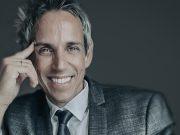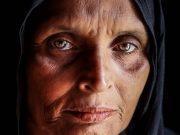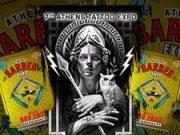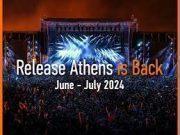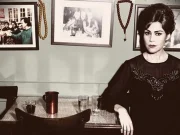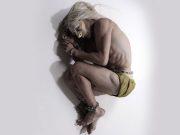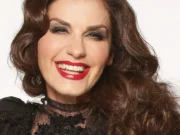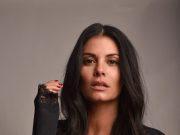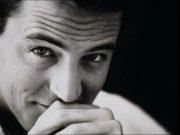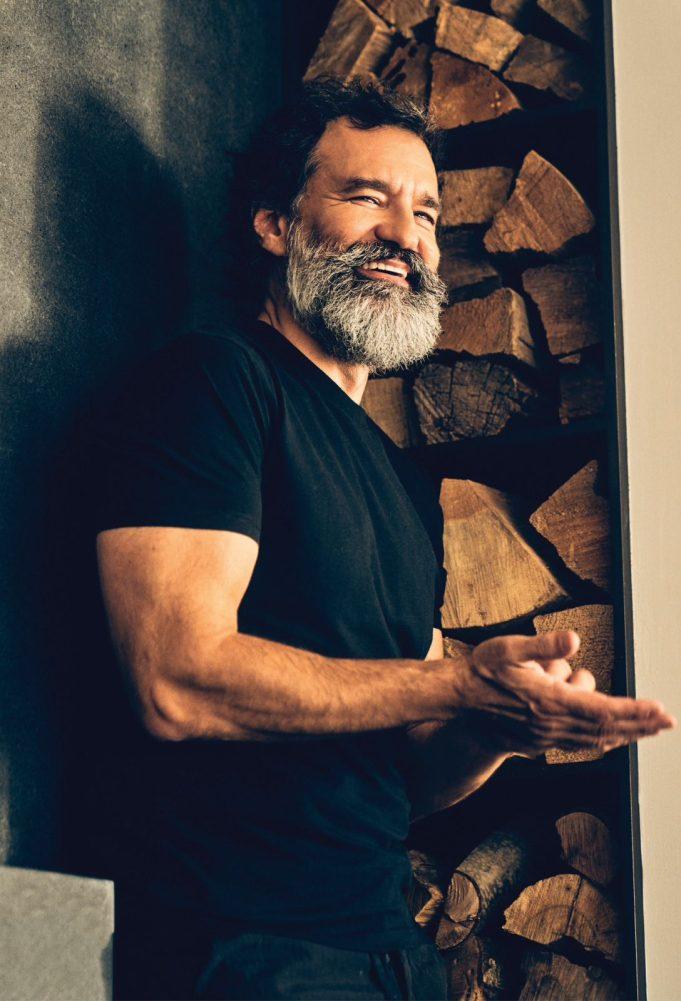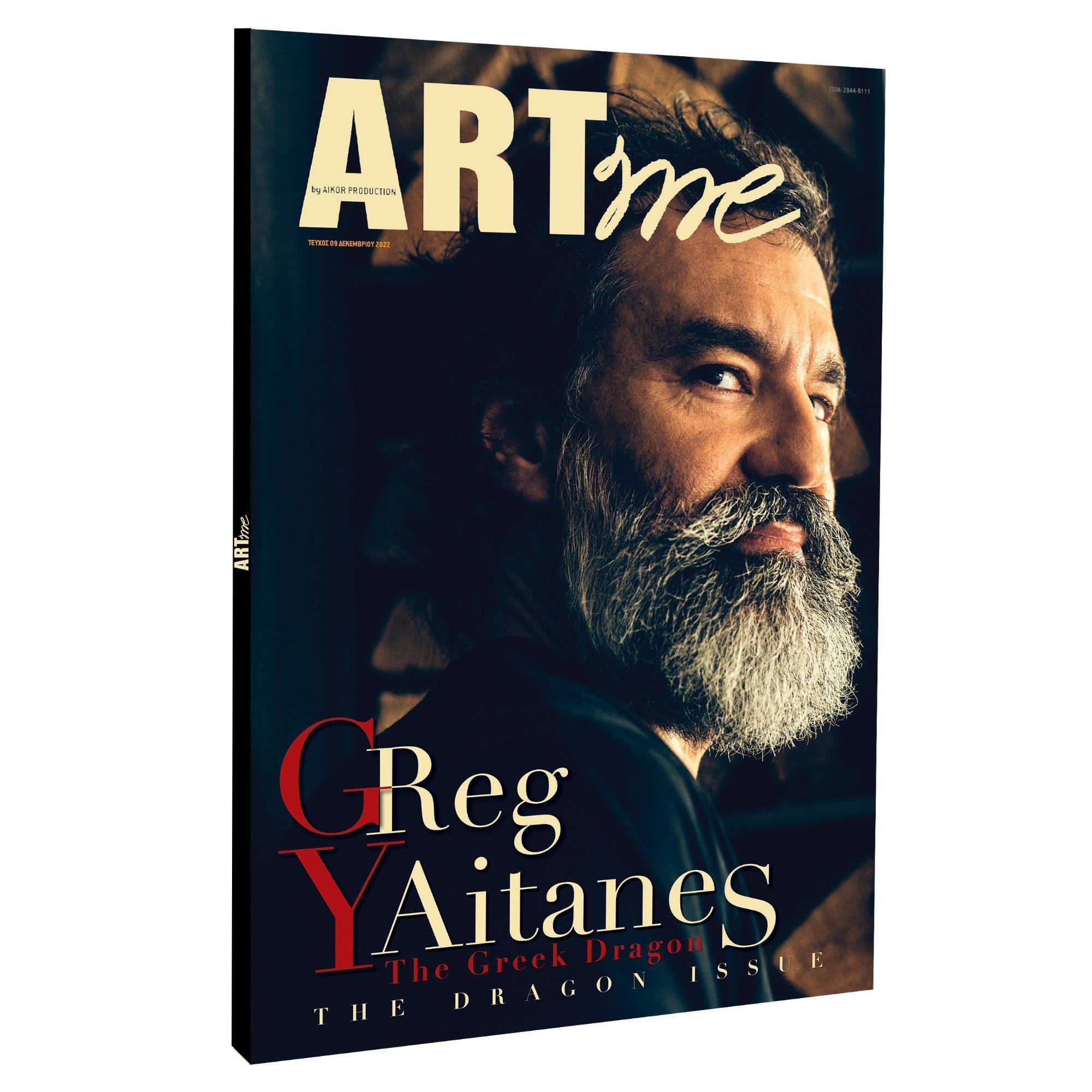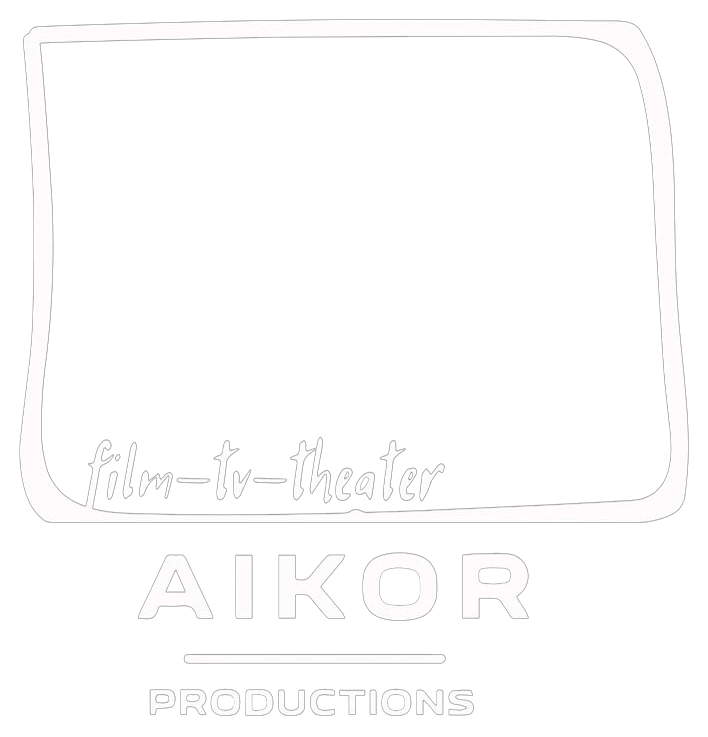Ο Greg Yaitanes είναι βραβευμένος σκηνοθέτης και παραγωγός Ελληνικής καταγωγής, με βάση το Los Angeles, αλλά με όνειρο να δουλέψει και στην Ελλάδα. Είναι παγκοσμίως γνωστός για τις αμέτρητες και μεγαλύτερες επιτυχίες της Αμερικανικής τηλεόρασης, όπως «Lost», «Prison Break», «The Old Man», «The Twilight Zone», «Greys Anatomy». Ο Greg έχει βραβευτεί με Emmy ως καλύτερος σκηνοθέτης της τηλεοπτικής σειράς «House, MD».
Φέτος η μεγάλη του επιτυχία πραγματεύεται δράκους, μάγισσες και βασίλεια και το prequel του «Game of Thrones», το «House of The Dragon» παίρνει μορφή και «ζωντανεύει» μέσα από την δίκη του οπτική ματιά. Είναι απερίγραπτα μεγάλη τιμή για το ARTme να φιλοξενεί έναν από τους πιο βασικούς συντελεστές του «House of the Dragon», στο τεύχος του Δεκεμβρίου και το THE DRAGON ISSUE και να έχουμε στο εξώφυλλο μας, τον Έλληνα Δράκο.
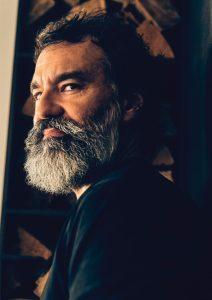
— Greg, το επίπεδό σου επαγγελματικά είναι πολύ υψηλό, είσαι ένας καταξιωμένος σκηνοθέτης παγκοσμίως, και αυτό σίγουρα θα εμπνεύσει το ελληνικό κοινό που θέλει να ασχοληθεί με την βιομηχανία διαβάζοντας αυτή τη συνέντευξη.Σημαίνει πολλά για μένα αυτό που είπες. Ήρθα για πρώτη φορά στην Ελλάδα, όταν ήμουν δεκατεσσάρων χρονών και υπήρχε μια κατασκήνωση για Αμερικάνους στα Ιόνια χωριά, κοντά στην Ολυμπία. Μπορούσες να δεις την Ζάκυνθο από την παραλία της κατασκήνωσης, και ήταν πολύ ωραία εμπειρία γιατί εκεί άνοιξαν τα μάτια μου, ενώ από πάντα αντιλαμβανόμουν το μειονέκτημα του να μη μου έχουν μάθει οι γονείς μου ελληνικά. Παράλληλα, είχα και μαθησιακές δυσκολίες οι οποίες δε διευκόλυναν το να μάθω μια καινούρια γλώσσα. Είμαι Ελληνοαμερικανός, τρίτης γενιάς. Η μητέρα μου είναι από ένα χωρίο κοντά στα σύνορα της Αλβανίας και ο πατέρας μου είναι από την Καλαμάτα. Θυμάμαι το χωριό του πατέρα μου γύρω στο ’90 να ευδαιμονεί – είχα γνωρίσει πολύ φιλικό κόσμο στο χωριό, αλλά την τελευταία φορά που ήμουν στην Αθήνα όταν γυρνούσαμε το «House of the Dragon» κανείς δεν είχε απομείνει στο χωριό. Όντας Aμερικανός τρίτης γενιάς, και χωρίς να γνωρίζω την ελληνική γλώσσα, προσπάθησα να επανακτήσω την «ελληνική
ταυτότητά» μου, αρχικά με το να αποκτήσω ελληνικό διαβατήριο – το οποίο πλέον και έχω – και με το να αρχίσω να μαθαίνω τη γλώσσα. Παρομοίως, τα δικά μου παιδιά χρησιμοποίησαν τα ελληνικά τους ονόματα και ξεκίνησαν τις διαδικασίες για να πάρουν ιθαγένεια. Έχω όνειρο να δουλέψω στην Ελλάδα, που ήταν και ένας από τους λόγους που χρειαζόμουν το διαβατήριο. Δουλεύοντας με το LA Greek Film Festival, και συμμετέχοντας
σε όλη αυτή τη συλλογικότητα, είχα την ευκαιρία να γνωρίσω νέους Έλληνες σκηνοθέτες, το οποίο ήταν πολύ εποικοδομητικό, και να αφιερώσω χρόνο ώστε να μελετήσω τις δουλείες τους. Υπάρχουν πολλές ευκαιρίες στον ελληνικό κινηματογράφο, αλλά θα είχε ενδιαφέρον να δούμε την ελληνική τηλεόραση να εξελίσσεται.
“Ήμουν τουλάχιστον ενθουσιασμένος που θα έπαιρνα μέρος σε αυτόν τον «κόσμο», του οποίου είμαι θαυμαστής του, τόσο καιρό. Το να είμαι μέρος ενός τόσο μεγάλου έργου, που εμπνέει τόσο πολύ κόσμο, είναι πραγματικά μεγάλο προνόμιο, αλλά έρχεται και με την ευθύνη του να φτιάξεις κάτι που εν μέρει ήδη υπάρχει, αλλά την ίδια στιγμή, πρέπει να το αντιμετωπίσεις σαν κινηματογραφιστής και να βγάλεις το καλύτερο δυνατό αποτέλεσμα.”

— Ας μιλήσουμε για το «House of the Dragon» το οποίο είναι ένα τεράστιο εγχείρημα και έχει κινήσει το ενδιαφέρον του κόσμου παγκοσμίως. Όλοι περιμένουν ήδη τη δεύτερη σεζόν με μεγάλη αγωνία. Όταν ανακοινώθηκε η πρώτη σεζόν, προφανώς και όλο το υπάρχον κοινό του «Game of Thrones» αδημονούσε να δει το spinoff. Πώς ένιωσες όταν έκανες τις πρώτες συζητήσεις για να πάρεις μέρος στο «House of the Dragon».
Ο Miguel Sapochnik είχε σκηνοθετήσει μερικά από τα καλύτερα επεισόδια του «Game of Thrones». Ήμασταν πολύ τυχεροί που συμμετείχε και στο «House of the Dragon». O Miguel και ο Ryan J. Condal θα το έτρεχαν μαζί, και από τη στιγμή που το ανέλαβε ο Miguel ήθελε να συνεργαστούμε. Είχαμε συζητήσει και για το «Game of Thrones», αλλά το πρόγραμμά μου τότε δεν μου επέτρεπε να πάρω μέρος, οπότε το είδε σαν μια ευκαιρία για εμάς τους δύο τελικά να δουλέψουμε μαζί στο prequel και έτσι με προσέγγισε. Άφησα την οικογένειά μου για ένα χρόνο – έπρεπε να κανονιστούν πάρα πολλά ζητήματα, και ταυτόχρονα ήθελα να έχω πολύ ενεργή παρουσία στην παραγωγή, οπότε τελικά πήρα την απόφαση και δεσμευτικά. Ήμουν τουλάχιστον ενθουσιασμένος που θα έπαιρνα μέρος σε αυτόν τον «κόσμο», του οποίου είμαι θαυμαστής του, τόσο καιρό. Βασικά, αυτό ήταν το όνειρο! Μεγάλωσα με «Star Wars» και comic books, τα οποία μου άλλαξαν τελείως την οπτική για την αφήγηση ιστοριών. Είχα πει στα παιδιά μου ότι θα φύγω από την πόλη μόνο για τη «Marvel», το «Star Wars» ή το «Game of Thrones». Έτσι, όταν με κάλεσαν για το «House of the Dragon», ο γιός μου μου είπε «Καλά, είναι δυνατόν; Σε πήραν στο «Game of Thrones!»», και εγώ απάντησα «Ναι, τώρα έμειναν τα άλλα δύο.» Ήταν πολύ συναρπαστικό και ήμουν πολύ ενθουσιασμένος όταν ανακοινώθηκε. Το να είμαι μέρος ενός έργου τόσο μεγάλου, που εμπνέει τόσο πολύ κόσμο, είναι πραγματικά μεγάλο προνόμιο, αλλά έρχεται και με την ευθύνη του να φτιάξεις κάτι που εν μέρει ήδη υπάρχει, αλλά την ίδια στιγμή, πρέπει να το αντιμετωπίσεις σαν κινηματογραφιστής και να βγάλεις το καλύτερο δυνατό αποτέλεσμα.
— Παράλληλα, όμως, δούλευες και με άλλους σκηνοθέτες.
Είχαμε τέσσερις σκηνοθέτες και δέκα επεισόδια. Εγώ σκηνοθέτησα τρία επεισόδια, ο Miguel τρία, η Claire Kilner τρία, και Geeta Vsant Patel το όγδοο επεισόδιο – το οποίο βρήκα εξαιρετικό, και είναι ένα από τα αγαπημένα μου της σεζόν – αλλά, κατά κύριο λόγο, και οι τέσσερις μας, ήμασταν εκεί, δουλεύοντας μαζί. Η παραγωγή είναι περίπου τέσσερις χιλιάδες άτομα – είχαμε πολλά μέρη γυρίσματος, και πηγαίναμε από το ένα location στο άλλο – ή ακόμα και από δύο σε τέσσερα – επτά ημέρες την εβδομάδα.
— Τέσσερις σκηνοθέτες – ο καθένας, όμως, έχει τις δικές του ιδέες, τη δίκη του οπτική ματιά, αλλά πρέπει όλοι να μείνουν στο ίδιο επίπεδο και να ακολουθούν τα κύρια στοιχεία της σειράς. Πώς το καταφέρνετε αυτό;
Αυτό είναι το δίλημμα όλης της τηλεόρασης, γενικά. Έχεις guest σκηνοθέτες, ενώ ένας σκηνοθέτης κάνει τον πιλότο, και θέτει τον τόνο όλης της σειράς για τους υπόλοιπους. Μετέπειτα, μπορείς να χτίσεις πάνω στον πιλότο, αλλά αυτός καθορίζει τη διάθεση, τους χαρακτήρες και σηματοδοτεί την αρχή της εξιστόρησης.
— Είναι πολύ ενδιαφέρον να βλέπεις τόσα πολλά άτομα να συνεργάζονται και να ενώνουν τις δυνάμεις τους.
Αρχικά, οι τέσσερις μας βρίσκουμε τις ιδέες που όλοι θέλουμε να χρησιμοποιήσουμε. Επειδή, όμως, έχουν ήδη κυκλοφορήσει οκτώ σεζόν του «Game of Thrones», ο πρώτος στόχος μας ήταν να φανεί αισθητικά το «House of the Dragon» ως συνέχεια του «Game of Thrones». Παρόλα αυτά, κάθε επεισόδιο έχει τις δικές του μοναδικές ανάγκες. Έτσι, προσπαθήσαμε να συγχρονιστούμε και να βρούμε τις ισορροπίες μας – μερικές φορές φαίνεται σαν να μην το καταφέρνουμε κατά τη διάρκεια του γυρίσματος, αλλά στο μοντάζ τα περισσότερα πράγματα ξεκινούν να παίρνουν μορφή και τότε η σεζόν αρχίζει να βγάζει νόημα. Αυτός είναι και ο στόχος ενός καλού διευθυντή παραγωγής/showrunner – στην προκειμένη, να κάνει τη σεζόν να μοιάζει «Game of Throne-ίστικη», όπως θα λέγαμε χαριτολογώντας, από ένα πλάνο ή μια ερμηνεία ή τη σκηνογραφία. Υπάρχουν πολλά πράγματα που πρέπει να λάβει κανείς υπόψη για να καταφέρει να περάσει αυτό που θέλει – γι’ αυτό λατρεύω τόσο την τηλεόραση και έχω κάνει μια καλή πορεία μέχρι τώρα, διότι μπορούσα να κάνω αυτό που χρειάζεται να γίνει στο εκάστοτε σόου, αλλά να αφήσω και το αποτύπωμά μου παράλληλα. Νομίζω πως ο θεατής μπορεί να δει διαφορετικές σκηνοθετικές προσεγγίσεις στο «House of the Dragon». Δουλεύαμε, από τη μία, σε μια μεγάλη κλίμακα και είχαμε πολλή αυτονομία, αλλά, από την άλλη, συνεχώς προσπαθούσαμε να συνεννοούμαστε και να τσεκάρουμε ο ένας τον άλλον – και ο Miguel με τον Ryan ήταν εκεί για να βάλουν τις τελευταίες πινελιές, ώστε να πουν την ιστορία όπως εξαρχής σκόπευαν. Είναι μια υπέροχη διαδικασία να την ζεις εκ των έσω.
— Έχουν κυκλοφορήσει επίσης και ντοκιμαντέρ για το behind the scenes του «House of the Dragon» για κάθε επεισόδιο.
Μάλιστα – και εγώ σαν παιδί θα ήθελα πολύ να είχα πρόσβαση σε κάτι τέτοιο, γιατί μου αρέσει πολύ να βλέπω τη δουλειά backstage, τα behind the scenes και ουσιαστικά, όπως το αποκαλεί και η κόρη μου, τη μαγεία της παραγωγής ταινιών. Έτσι μόνο μαθαίνεις, πιστεύω. Μου έδωσαν ένα κουτί με behind the scenes του «Game of Thrones» σε DVD για να δω όσο ήμουν καραντίνα στο Λονδίνο, δύο βδομάδες πριν ξεκινήσουμε. Έχω δει τη σειρά τρεις φορές, αλλά τα DVD βοήθησαν στο να πάρω μια αίσθηση του τι προσπαθούσαν να κάνουν αλλά και πώς εν τέλει το κατάφεραν –γιατί κανείς από τους σκηνοθέτες που δούλευαν στο «Game of Thrones» δεν ήταν μέρος του spinoff. Δεν έχω την ευκαιρία να δω πολλές από τις δουλειές άλλων σκηνοθετών, γι’ αυτό μου αρέσει να δουλεύω σαν παραγωγός, αφού μου επιτρέπει να βλέπω/επιτηρώ τη δουλειά άλλων – μερικές φορές, αυτή η δουλειά τυχαίνει να είναι και η δική μου, αλλά με ενδιαφέρει να βλέπω τι κάνουν οι υπόλοιποι συντελεστές κατά τη διάρκεια του γυρίσματος.
“Είμαι πολύ ευγνώμων για την καριέρα που έχω χτίσει αυτά τα τριάντα χρόνια που βρίσκομαι στον χώρο της σκηνοθεσίας. Είμαι πενήντα δύο χρονών και νιώθω πως έχω τον έλεγχο
της τέχνης μου και των αφηγηματικών τεχνικών μου, και με συναρπάζει το πόσοι τρόποι υπάρχουν για να ειπωθεί μια ιστορία.”
— Τελικά είναι μεγάλη πρόκληση να είστε τόσοι σκηνοθέτες σε ένα project?
Υπάρχει μεγάλη συντροφικότητα και συνεργαζόμαστε όλοι μαζί ώστε να λύσουμε όποια θέματα προκύψουν από κοινού – συχνά και σε μικρές ομάδες. Οπότε μια ομάδα σκηνοθε-
τών καταλήγει να δίνει ιδέες που οι υπόλοιποι συντελεστές να φέρνουν εις πέρας. Εμείς σκεφτόμαστε τι θέλουμε και αυτό πάει απευθείας στη μηχανή του σόου, για να βρούμε
πώς θα το πετύχουμε – για παράδειγμα, πώς θα στήσουμε ένα μεσαιωνικό κυνήγι ή μια σκηνή με δράκους, ποια είναι τα καλύτερα εργαλεία για να γυρίσουμε μια σκηνή σε μια
γέφυρα. Είναι σαν έχεις δύο ρόλους – να δημιουργήσεις το πρόβλημα, και μετά να το λύσεις.
— Πόσο εύκολο ήταν να ελέγχεις τόσους ανθρώπους την ώρα της δουλειάς;
Νιώθω πως είμαι σαν στο σπίτι μου όταν είμαι στο σετ. Ταυτόχρονα, νιώθω πως ξέρω να ενθαρρύνω τους συνεργάτες μου και να περιτριγυρίζομαι από έξυπνους ανθρώπους. Ξέρω τι δεν ξέρω, και αφήνω αυτούς που ξέρουν τη δουλειά τους να βρουν λύση στο πρόβλημα που έχω – ενώ ηγούμαι της διαδικασίας, αυτοί λειτουργούν σαν τα χέρια μου, τα δάκτυλά μου και το μυαλό μου. Είναι μια δύσκολη θέση να περιγράψω, ειδικά όταν με ρωτάνε τι σημαίνει να είσαι σκηνοθέτης, αλλά εμπνέει μια αναζωπυροτική αίσθηση συλλογικότητας αυτή η ομαδική προσπάθεια. Πάντα σύγκρινα, το να δουλεύω στη τηλεόραση, με μια σκηνή της ταινίας «Apollo 13» – όπου οι αστροναύτες αφήνουν όλα τα πράγματά τους σε ένα τραπέζι, προσπαθώντας να βρουν λύση για το πώς να ταξιδέψουν μόνο με αυτά. Η μαγεία συμβαίνει όταν σμίγουν οι ομάδες– ακόμα και αν δεν έχουν γνωριστεί ποτέ μεταξύ τους όλα τα μέλη, ο καθένας έρχεται στη δουλειά και ξέρει τον ρόλο του. Όταν μιλάμε για χιλιάδες άτομα, σκέφτεσαι πολύ συχνά πώς αυτή η συλλογική μηχανή μπορεί να φέρει εις πέρας τους σκοπούς σου – μερικές φορές πρέπει να φερθείς πολύ επιδέξια, ειδικά εν μέσω πανδημίας, το οποίο δυσκόλεψε τα πράγματα για μια δουλειά που είναι ήδη δύσκολη από τη φύση της.
— Γιατί διάλεξες να σκηνοθετήσεις το φινάλε;
Όταν ξεκινάς με μια σειρά, και έχεις την πολυτέλεια να έχει γραφτεί όλο το σενάριο εξ αρχής, μπορείς να βρεις τι σε εμπνέει στη σειρά – και για εμένα, ήταν το επεισόδιο επτά, όπου όλοι οι χαρακτήρες μαζεύονται για την κηδεία της Heleana (Evie Allen) και ο Aemond (Leo Ashton) παίρνει τον δράκο. Ο Miguel ήθελε να σκηνοθετήσω το επεισόδιο τρία, λόγω της μάχης και του κυνηγιού στα οποία έχω εμπειρία, και εγώ διάλεξα για τα επόμενά μου επεισόδια, το επτά και το δέκα. Αυτό γιατί με συγκίνησαν οι θεματικές του, όπως ο θάνατος ή η επανάκτηση της δύναμης – και το φινάλε, γιατί αφορούσε τη δυναμική μεταξύ συζύγων. Υπήρχε η σκηνή-δόλωμα για έναν σκηνοθέτη με τους δράκους στο τέλος του επεισοδίου, αλλά ήταν η οικειότητα μεταξύ Rhaenyra (Emma D’Arcy) και Daemon(Matt Smith), ή μεταξύ Corlys (Steve Toussaint) και Rhaenys (Eve Best), που με κέρδισαν. Θεματικές όπως, γάμοι και συντροφικότητα είναι οι αγαπημένες μου, διότι οι πολυπλοκότητα των σχέσεων έχει πολύ ενδιαφέρον για εμένα
— Πώς είναι να σκηνοθετείς δράκους;
Οι δράκοι ξεκίνησαν σαν παιχνίδια τα οποία αγόρασα, στην προσπάθειά μου να βρω τρόπο για να στήσω αυτήν την σκηνή, διότι το σενάριο ήταν αρκετά γενικό σχετικά με την χορογραφία της σκηνής, της μάχης, μεταξύ των δράκων και των σκηνών που χρειαζόμασταν για να επενδύσουμε συναισθηματικά, όπως, για παράδειγμα, όταν οι χαρακτήρες έχασαν τον έλεγχο των δράκων ή όταν ο δράκος τελικά καταβροχθίζει τον
Luke (Elliott Grihault). Η σκηνή έπρεπε να έχει αρχή, μέση και τέλος σεναριακά, και ταυτόχρονα έπρεπε να γεμίσω το ενδιάμεσο, οπότε είχα αρκετή ελευθερία. Έτσι, αγόρασα παιδικά παιχνίδια-δράκους και τραβούσα τα πλάνα με κινητό, μαζί με τον διευθυντή φωτογραφίας, ώστε να χτίσουμε τη σκηνή στο storyboard και μετά να περάσουμε στο animation της μάχης όπως την χρειαζόμασταν για το previs. Είχαμε μια κάμερα από iPad που μας έδειχνε τον δράκο στην οθόνη, οπότε ξεκινήσαμε από παιχνίδια-δράκους, περάσαμε στο animated version όπως σε ένα παιχνίδι, και έτσι καταλήξαμε στις κινήσεις και τη χορογραφία των πλάνων. Το πλάνο που απόλαυσα πιο πολύ ήταν η εμφάνιση του μεγάλου και γηραιότερου δράκου, πάνω από τον Luke μέσα από τα σύννεφα κατά τη
διάρκεια μιας αστραπής. Δούλεψα πολύ για να βγει αυτό το πλάνο, και για να καταλάβει ο θεατής, όχι μόνο την ταχύτητα που πετούσαν, αλλά και τη διαφορά μεγέθους μεταξύ των
δύο δράκων. Σκόπευα σε μια αίσθηση ταινίας τρόμου, αλλά κύριος σκοπός ήταν να είμαι ένα βήμα πριν από τον θεατή. Πιστεύω πως όλοι ήξεραν ότι, όταν ο Luke ξεκινούσε να πετάει στην καταιγίδα, κάτι επρόκειτο να πάει λάθος. Όταν προσγειώνεται ο Vhagar εκεί, το ίδιο. Σκεφτόμουν τη στιγμή της καταιγίδας σαν επιβάτης σε αεροπλάνο – και συγκεκριμένα, το τι βλέπει ένας επιβάτης όταν το αεροπλάνο περάσει πάνω από τα σύννεφα, όπου υπάρχει αυτή η απόλυτη ομορφιά και αίσθηση ασφάλειας, η οποία θα αποσπούσε τον θεατή, μέχρι τη στιγμή που ο μεγάλος δράκος τρώει τον μικρό.
“Νιώθω πως είμαι σαν στο σπίτι μου όταν είμαι στο σετ. Ενώ ηγούμαι της διαδικασίας, η ομάδα λειτουργεί σαν τα χέρια μου και το μυαλό μου. Η μαγεία συμβαίνει όταν σμίγουν οι ομάδες!”
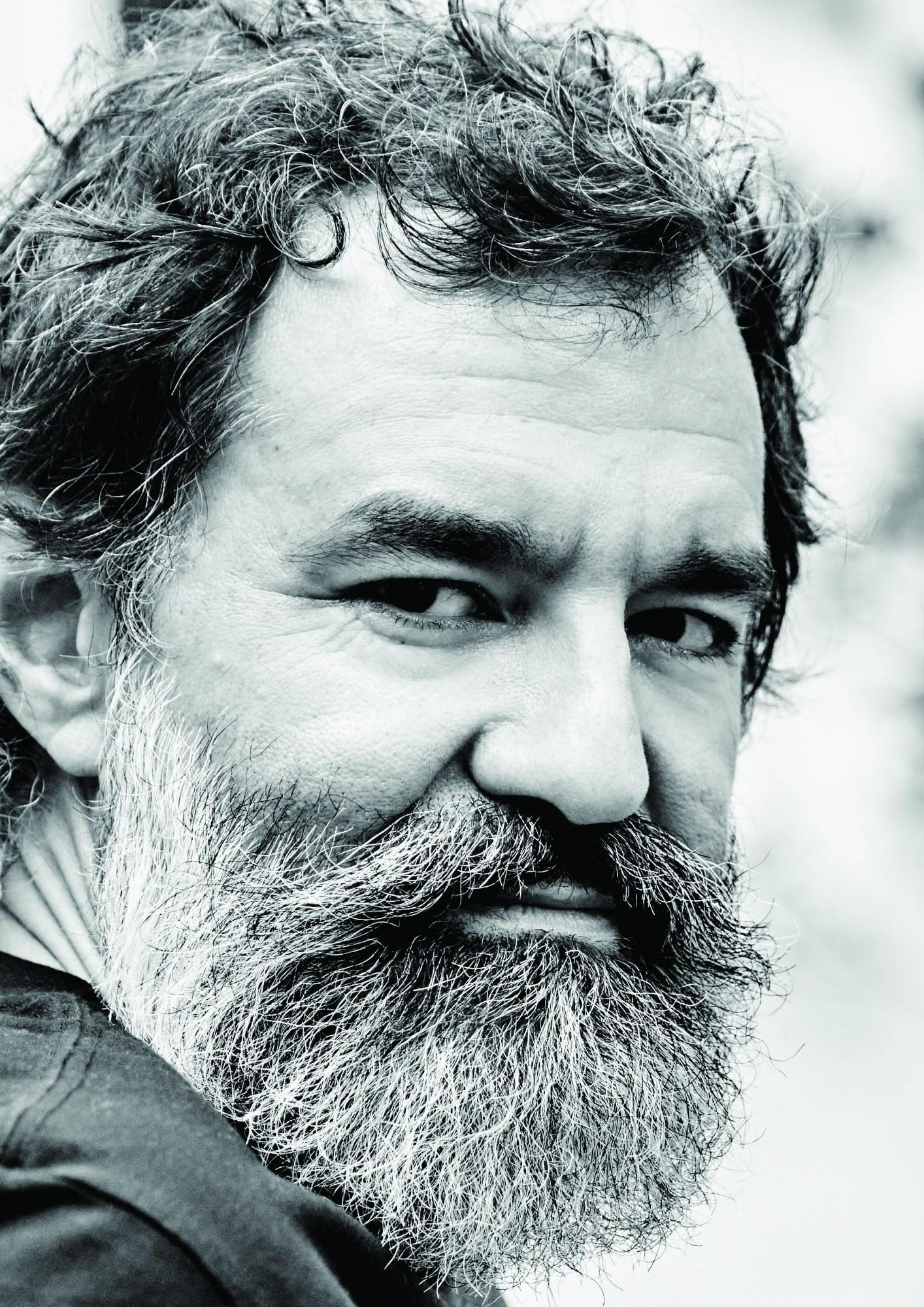


— Πώς είναι να δουλεύεις με εφήβους και παιδιά; Πολλοί μπορεί να είναι επαγγελματίες ηθοποιοί ήδη, άλλοι όμως μπορεί να βρεθούν στο γύρισμα μόνο για μια μέρα. Πώς χτίζεις τη σχέση μεταξύ νεαρού ηθοποιού και σκηνοθέτη; Και ταυτόχρονα, πώς χτίζεις χαρακτήρες όπως τη Rhaenyra, που τη βλέπουμε και στην εφηβεία της, αλλά και ενήλικη;
Η Millie Alcock παίζει έναν χαρακτήρα νεότερο από την πραγματική της ηλικία, βασισμένη στα δικά της εφηβικά χρόνια. Η Millie ήταν είκοσι χρονών όταν ξεκινήσαμε την σειρά, ενώ
η Emily που παίζει την Alicent, ήταν νεότερη. Ήταν υπέροχη η συνεργασία με την Emily, διότι είναι επαγγελματίας ηθοποιός από μικρή ηλικία και έχει θεμέλια λόγω της εμπειρίας
της. Αντιθέτως, για τη Millie ήταν ουσιαστικά η πρώτη της δουλειά, και έφερε μια πολύ ωμή ενέργεια στο σετ και τον χαρακτήρα της, οπότε ήταν μια πολύ ενδιαφέρουσα εμπειρία
το να τιθασευτεί αυτή η ενέργεια. Ήταν όπως ένα άγριο άλογο – πρέπει να το σεβαστείς, αλλά ταυτόχρονα, πρέπει και να το τιθασεύσεις. Έτσι, υπήρχε πολλή δουλειά για το χτίσιμο
του χαρακτήρα της νεότερης Rhaenyra, επειδή η Millie και η Emma δεν είχαν το πλεονέκτημα να δουλέψουν μαζί και να βλέπουν το πώς προσεγγίζει η κάθε μια τον ρόλο, όπως, για παράδειγμα, σε ταινίες σαν το «Godfather». Εγώ σκηνοθέτησα τα επεισόδια δύο και δέκα, τα οποία συνδέονται θεματικά, και βλέπουμε τη Rhaenyra και στις δύο ηλικίες.
Ταυτόχρονα, ο Elliott, που έπαιξε μόνο σε δύο επεισόδια, ήταν επίσης ένας εξαίσιος νέος ηθοποιός – ο χαρακτήρας ήταν γραμμένος σε νεότερη ηλικία αρχικά, αλλά δε λαμβάναμε στις ακροάσεις τη συναισθηματική πολυπλοκότητα που απαιτούσε αυτός ο ρόλος από παιδιά που ήταν δέκα χρονών. Ο Elliott ήταν τότε δεκαέξι χρόνων και παίζει την ηλικία των δεκατεσσάρων στη σειρά. Ήταν άψογος στην οντισιόν του και κατευθείαν κέρδισε τις εντυπώσεις– και ένα από τα χαρακτηριστικά της τηλεόρασης είναι το ότι έχεις guest ηθοποιούς, και, ως σκηνοθέτης, πρέπει να τους συντονίσεις στον τόνο της σειράς γρήγορα, αλλά και με ευλάβεια.
— Υπάρχουν τέσσερις γέννες μέσα στη σειρά (Rhaenyra, Heleana, Aemma). Γιατί ήταν σημαντικές αυτές οι σκηνές για τη σειρά;
Αυτή είναι μια ερώτηση που πιστεύω ότι πιο καλά θα απαντήσει ο Ryan. Η γέννα που είναι στο επεισόδιο δέκα περιγράφεται με πολύ λεπτομέρεια στο βιβλίο, και ήταν πολύ σημαντικό να την αποδώσουμε ανάλογα – λάβαμε αρκετή πίεση ως προς αυτό. Το ότι ήρθε και στο φινάλε, δηλαδή αφού είχαμε ήδη γύρισμα παραπάνω από εκατό μέρες, μας έδωσε πολύ χρόνο για να τη σκεφτούμε – ίσως και να την υπέρ-σκεφτούμε και να τη στήσουμε. Το φινάλε συνδέεται θεματικά και με το δεύτερο αλλα και με το πρώτο επεισόδιο, οπότε προσπάθησα να παρουσιάσω αυτές τις συνδέσεις, για παράδειγμα μεταξύ Rhaenyra και της μητέρας. Η σκηνή είναι τελείως βγαλμένη από το βιβλίο, οπότε νιώσαμε πως έπρεπε να την αναπαράγουμε καταλλήλως, όπως ο George R. R. Martin την περιέγραψε.
— Πολλοί άνθρωποι που δεν είναι γονείς φάνηκε να τη βρήκαν σκληρή σκηνή – εγώ προσωπικά είδα έναν δράκο να γεννάει.
Και έχεις απόλυτο δίκιο. Αυτός ήταν και ο σκοπός – να δούμε τη σύνδεση μεταξύ δράκου και καβαλάρη. Όπως ένα ζώο, παραδείγματος χάρη, όταν γεννάει πάει μόνο του στο
δάσος, έτσι και εμείς κρύψαμε τη Rhaenyra πίσω από έναν πάγκο. Οι άλλες γέννες τις σειράς ήταν όλες σε κρεβάτια, οπότε υπήρχε κάτι πολύ ζωώδες και πρώιμο στη γέννα της
Rhaenyra. Και ταυτόχρονα με τη γέννα, έπαιζαν και τα πλάνα του Syrax, για να νιώσει ο θεατής τη συναισθηματική σύνδεση μεταξύ τους και την συμπόνια που μοιράζονται. Σε σχέση, όμως, με τα όρια του πότε κάτι ικανοποιεί ή δυσκολεύει τον θεατή, αυτό είναι υποκειμενικό. Για εμάς, ήταν σημαντικό να έχουμε μια ισορροπία των δύο – για την ακρίβεια, υπάρχει περισσότερο υλικό από αυτή τη σκηνή και πολύ πιο έντονο, αλλά δε θέλαμε ουσιαστικά να υπερβεί της ιστορίας που προσπαθούσαμε να πούμε.
— Γιατί ξεκίνησε όλη η ιστορία των Targaryen από τη μέση του βιβλίου και τον Viserys, που ήταν o ειρηνικός βασιλιάς, και όχι από τον Aegon τον Κατακτητή;
Νομίζω ότι η ιστορία του Aegon the Conqueror είναι μια ιστορία που οπωσδήποτε πρέπει να ειπωθεί – είτε σε άλλες σεζόν, είτε σε άλλη σειρά, δεν ξέρω ακριβώς την απάντηση, αλλά πιστεύω πως η επιλογή μας οφείλεται στο πόσο πίσω θέλαμε να πάμε ιστορικά για να στήσουμε την πρώτη σεζόν της σειράς – που είναι και ο πρόλογός της. Για παράδειγμα, στην αρχή της πρώτης ταινίας του «Lord of the Rings», ο χαρακτήρας της Cate Blanchett αφηγείται και εξηγεί στον θεατή τη μέση γη, τα δακτυλίδια και ουσιαστικά το πώς φτάσαμε
στο σημείο που ξεκινά η ιστορία της ταινίας. Έτσι και εμείς είχαμε συζητήσεις για το πόσο πίσω θα πάμε, αν θα δείξουμε τον Κατακτητή ή αν θα δούμε τον θρόνο να χτίζεται. Ο πρόλογος συζητάει κυρίως τις κοινωνικές διαφορές και ανισότητες μεταξύ άντρα και γυναίκας και φυσικά της διαμάχης για τον θρόνο. Είναι μια ήσυχη και ειρηνική περίοδος για το βασίλειο, αλλά πρέπει πρώτα να αισθανθείς την ειρήνη, ώστε αργότερα να τη δεις να ξεφτίζει, ώστε να φτάσουμε στο σημείο που ξεκινάει ο εμφύλιος, που είναι και το φινάλε της σεζόν.
— Πόσο σημαντική ήταν η εκπροσώπηση διαφορετικών σεξουαλικοτήτων, φυλών και φύλων – μεταξύ άλλων – για αυτή τη σεζόν;
Ήταν πολύ σημαντικό για όλους μας να το καταφέρουμε αυτό. Το Westeros του Martin είναι μια αναλογία της Ευρώπης – το Dorne αντιστοιχεί στην Ισπανία, το King’s Landing στην Αγγλία κ.τ.λ. Από τη μία, πρέπει να μείνεις πιστός στο κείμενο – σε ένα κείμενο που ήδη πολύς κόσμος γνωρίζει – αλλά και στο όραμα του συγγραφέα. Γι’ αυτό, πρέπει να εισάγεις ανθρώπους διαφορετικών φυλών και φύλων με την ανάλογη προσοχή. Ταυτόχρονα, η πλοκή αφορά, κατά κύριο λόγο, δύο γυναίκες και τις πολυπλοκότητες της σχέσης τους. Το «Game of Thrones» ήταν μια παραγωγή της εποχής του, και είχαμε επίγνωση των κριτικών που τότε είχε λάβει, σχετικά με την απεικόνιση των γυναικών στη σειρά, και ήταν στόχος όλων, να φτιάξουμε μια σεζόν που απαντά στο τώρα και που αφορά
αυτά τα σημαντικά ζητήματα της εποχής μας, επίσης.
“Είμαι Ελληνοαμερικανός, τρίτης γενιάς και έχω όνειρο να δουλέψω στην Ελλάδα!”
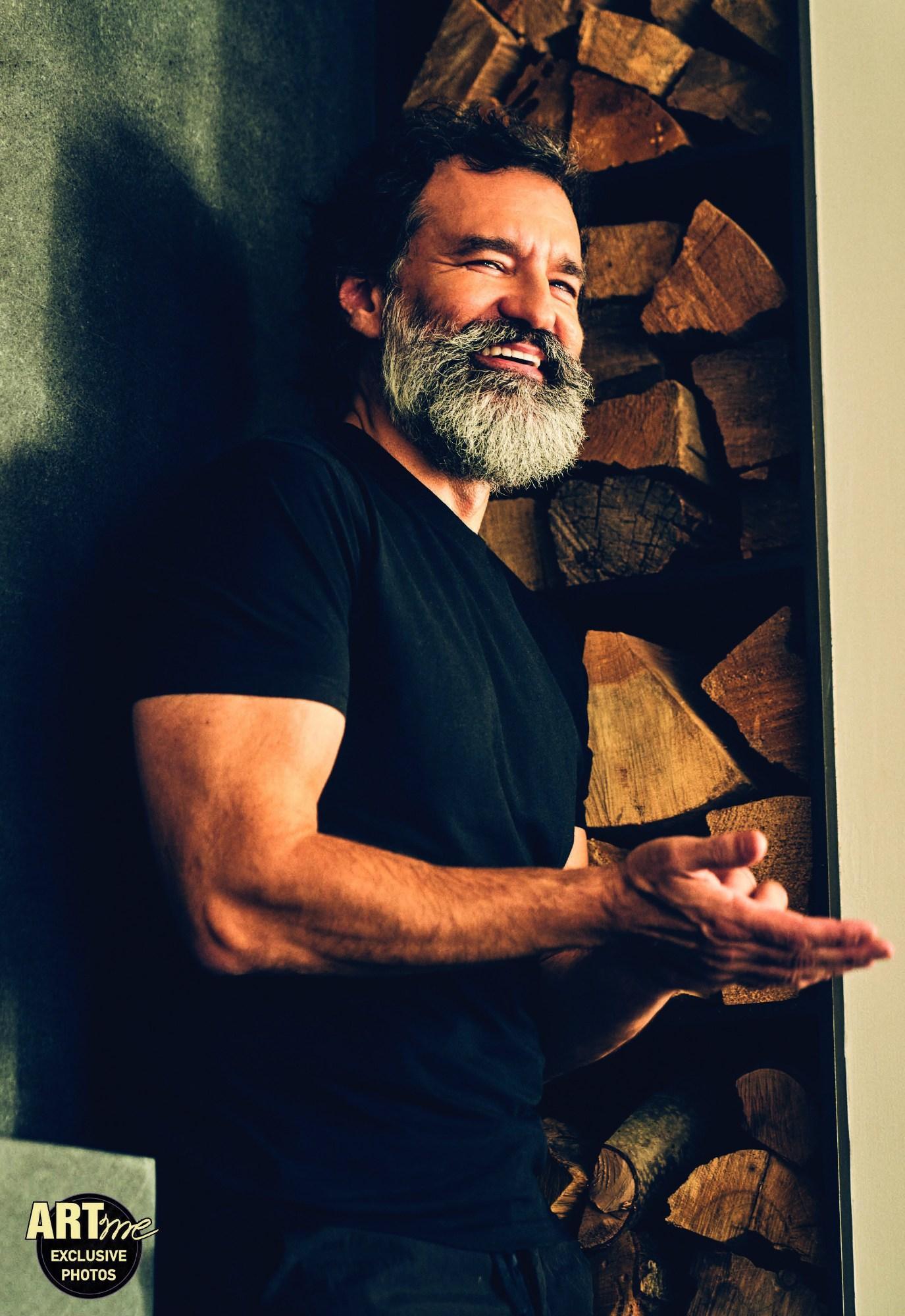


—Είναι πολύ σημαντικό σαν καλλιτέχνες να δείχνουμε τέτοιες διαφορετικές οπτικές, στις ιστορίες μας, στις ιστορίες που «χτίζουμε» – είναι κάπως σαν κοινωνικό καθήκον.
“Νιώθω πως είναι όπως όταν ζωγραφίζεις έναν καμβά – πρέπει να αντικατοπτρίζεται ο κόσμος που ζούμε πάνω του. Είναι εκεί, και μιλάει από μόνη της η σεζόν και είμαι σίγουρος ότι θα συνεχίζει να εξελίσσεται η σειρά μαζί με όλους μας.”
— Γνωρίζω ότι δεν μπορείς να μοιραστείς και να μιλήσεις για την επερχόμενη σεζόν. Εμείς απλά ελπίζουμε να σε δούμε και σε αυτήν με μεγάλη αγωνία και χαρά. Τι να περιμένουμε πέραν αυτού, όμως, από τον Greg;
Είμαι πολύ ευγνώμων για την καριέρα που έχω χτίσει αυτά τα τριάντα χρόνια που βρίσκομαι στον χώρο της σκηνοθεσίας. Είμαι πενήντα δύο χρονών και νιώθω πως έχω τον έλεγχο της τέχνης μου και των αφηγηματικών τεχνικών μου, και με συναρπάζει το πόσοι τρόποι υπάρχουν για να ειπωθεί μια ιστορία – για παράδειγμα, αναρωτιέμαι τι θα έχει να προσφέρει το metaverse σε αυτό, με την εισαγωγή του στη ζωή μας. Eίμαι συνιδρυτής μιας εταιρείας αισθητικής και βρήκα πολύ ενδιαφέρον στο τρόπους αφήγησης ιστορίας κατά τη διάρκεια δημιουργίας περιερχομένου για την εταιρεία. Κατά βάση, αναρωτιέμαι για κάθε μέρος και τρόπο που μπορώ να πω μια ιστορία, για το τι εμπειρίες και εμπόδια θα βρω, καθώς με απασχολεί και το πώς να μεταλαμπαδεύσω τις γνώσεις μου. Ένα από τα πράγματα με τα οποία ασχολούμαι τον τελευταίο χρόνο είναι η καθοδήγηση νέων σκηνοθετών ως μέντοράς τους, ειδικά στην Ελλάδα, όπου περνάω πολύ χρόνο με αυτούς. Έχω και μια ομάδα νεών σκηνοθετών που βοηθάω αναλόγως, στο Los Angeles. Στο σετ του «House of the Dragon» είχαμε δύο πρακτικάριους που βοηθούσαν κατά τη διάρκεια της παραγωγής της σειράς. Και απόφοιτοι της τάξης μου τα πηγαίνουν εξαιρετικά αυτή τη στιγμή, είτε σαν διευθυντές παραγωγής και διευθυντές εκτέλεσης παραγωγής. Είχα και εγώ μέντορα νεότερος, και νιώθω πολύ ευγνώμων για τους ανθρώπους που μοιράστηκαν μαζί μου τις γνώσεις και τις εμπειρίες τους. Είμαι ακόμη σε ένα σημείο στη ζωή μου που θέλω να λέω ιστορίες να δουλεύω, αλλά κατά τη διάρκεια αυτού, θέλω και να βοηθάω τον κόσμο που θέλει να ασχοληθεί με τη βιομηχανία. Όταν σπούδαζα κινηματογράφο, είχα καθηγητές στο πανεπιστήμιο που ήταν εκτός της δουλειάς πολύ καιρό και είχαν χάσει την επαφή με το γύρισμα. Οπότε πιστεύω ότι μπορώ να δώσω πιο πολλά σαν μέντορας κατά τη διάρκεια μιας δουλείας που είμαστε όλοι μέρος της. Νιώθω ότι, όταν σταματήσω να κάνω τηλεόραση, δε θα μπορώ να βοηθήσω εξίσου καλά τη νεότερη γενιά όπως τώρα που είμαι στην αγορά, δουλεύοντας, μαζεύοντας εμπειρίες και βιώνοντας αλλαγές. Μου αρέσει να λέω ιστορίες σε μεγάλες χρονικές περιόδους και το να είσαι μέρος του «House of the Dragon», που έχει τέτοιο πολιτιστικό αντίκτυπο, και ειδικότερα στην Ελλάδα, σημαίνει
πολλά για εμένα
— Αυτό είναι ο καλλιτέχνης εξάλλου – σπέρνει γνώση. Και εσύ είσαι τέτοιος καλλιτέχνης – ένας που μοιράζεται τις γνώσεις και τις εμπειρίες του. Και όσο πιο πολύ μοιράζεσαι, τόσο πιο πολλά παίρνεις και εσύ πίσω.
Υπάρχουν άνθρωποι που δε μοιράζονται τόσο τις γνώσεις τους – νιώθω ότι χρωστάμε στη νέα γενιά, να δώσουμε τα εργαλεία που έχουμε, ώστε αυτή, να δημιουργήσει και να χτίσει πράγματα που θα ξεπεράσουν αυτά που κάνουμε εμείς τώρα.
Βρείτε τη συνέντευξη στο έντυπο τεύχος Δεκεμβρίου του ARTme:
Εξώφυλλο: Greg Yaitanes
Φωτογράφος: Shayan Asgharnia
Μακιγιάζ: Kelly Shew
Μαλλιά: Mark Townsend
Περιποίηση από The Lonely Barber
Προϊόντα Μακιγιάζ: Kosas, Copenhagen Grooming, Retrouve, Soma Ayurvedic
Ενδυματολόγος: Greg Lauren
Ενδύματα: True Classic
Interview: Μαρία Κορινθίου – Βαλεντίνη Δαφνούλη
Επιμέλεια κειμένου- μετάφραση: Βαλεντίνη Δαφνούλη
Graphic design: Μαρία Σταμπούλη
Web developer & Web desing: Γιάννης Κακαβούλης
Παραγωγή: Aikor Productions
Greg Yaitanes is an award-winning director and producer of Greek origin, based in Los Angeles, with a dream to work in Greece as well. He is known worldwide for his work in some of the most popular hits of American television, such as «Lost», «Prison Break», «The Old Man», «The Twilight Zone», and «Greys Anatomy». Greg has won an Emmy Award for Outstanding Directing for a Drama Series, of the television series «House, MD».
This year his big hit deals with dragons, witches and kingdoms and the prequel of «Game of Thrones», «House of The Dragon» takes shape and ‘comes to life’ through his directorial gaze. It is an indescribable honor for ARTme to host one of the most essential contributors of the «House of the Dragon» for December’s THE DRAGON ISSUE and feature the Greek Dragon on our cover.


— Greg, you are an established director and producer globally – this interview can hopefully inspire the Greek audience that aims to work in the industry.
This would mean a lot to me. When I visited Greece for the first time, I was fourteen years old and went to a summer camp for Americans called Ionian Village that was near Olympia, and could see Zakynthos from the beach, and it was overall a great experience, as it helped to open my eyes. I’ve always felt that my parents left me at a great disadvantage by not speaking Greek and their decision to not teach us, was something I was always sad about. There were some learning difficulties that prevented me from learning the language. My mother comes from a village close to the Albanian boarders and my father from Kalamata. I remember my father’s village thriving around the ‘90s – I met very friendly faces there, but the last time I was in Athens while filming «House of The Dragon», no one was left in the village anymore. So, being a third generation Greek American, and because our parents specifically raised us without the language, I tried to reclaim my Greek identity and trace back everyone’s heritage to get my Greek passport – which I have – and wanted to start learning the language. Similarly, my kids have reclaimed all their Greek names, and they are working on getting the citizenship as well, so that we can start new. I’ve always had this dream of working in Greece, which was another reason for wanting to get my passport, to come there and be involved. Working with the LA Greek Festival, it’s been great to meet all the young filmmakers of Greece, which was very rewarding. I think Greece has enormous opportunity in the film space, but it’s exciting to see that TV could be evolving. I watch Israeli, German, and French TV – I want to see a Greek show transcend and go on to Netflix and reach the US.
“I was at least excited to be a part of this «world» that I’ve been a fan of for so long. To be part of such a big project, that inspires so many people, is a really great privilege, but it also comes with the responsibility of making something that partly already exists, but at the same time, you have to approach it like a filmmaker and make the best possible result.”



— Let’s discuss about «House of The Dragon», which is a huge project and has gained people’s attention worldwide. Everyone is already anticipating season 2. Similarly, when the first season of «House of The Dragon» was announced, the existing «Game of Thrones» fandom was looking forward to the spinoff. So, I firstly wanted to ask you how you felt when you had the first discussions to join «House of The Dragon».
Miguel Sapochnik, who directed some of the best episodes of «Game of Thrones» was recruited to do «House of the Dragon», so Miguel and Ryan G. Condal were going to run
the show together, and the second that Miguel got it, he saw an opportunity for us to work together from the ground up and he approached me. He been trying to get me to do the original got a couple of times, but my schedule did not allow it back then, so I left my family for a year – it was a lot to work out and I wanted to be more involved in a producorial level and make this commitment, and so, when that took shape and looked like I was going to be part of that project, it was thrilling to be invited into a world I was a fan of. This was the dream – I grew up watching «Star Wars» and reading comic books which changed my whole life and perspective on storytelling. I told my kids that I would only leave town for «Star Wars», Marvel or «Game of Thrones», and then got called, my son said, “I can’t believe «Game of Thrones» called!”, and I said; “Now we’ve got «Star Wars» and Marvel to go”. It was very exciting to announce it – you feel proud to be part of something so big, and that matters to people so much, and you feel a real privilege and a great responsibility to make sure that you make the best possible film/episode/series you can make as a filmmaker.
— At the same time though, you were working with three more directors.
We had four directors doing ten episodes; I directed three, Miguel directed three, Clare Kilner directed three episodes, and Geeta Vsant Patel directed episode eight– which I
thought was terrific and was one of my favourites of this year. So, the four of us were there pretty much all the time working together. The production is nearly four thousand
people to make the show, and we had multiple units working, we were moving around between those units, from two units shooting to four units for instance, and we are moving around constantly seven days a week.
— You are four directors. Each one has their own point of view, but at the same time they have to work together and follow the main themes of the series. How did you manage that?
That is the dilemma of all television. The way television works is that you have guest directors come in. A director comes in and does the pilot episode and that episode, if it goes well, is the template for all episodes to come, so you can build on that, but the pilot sets the tone and establishes the characters and gets thing started. We would meet a lot and the four of us would share the ideas that we wanted to get across. We had already eight seasons of «Game of Thrones» and we wanted the show to feel like a continuation of the series, so we knew what it looked like, but every episode had its own unique needs. And then sometimes, there are things that seem out of balance, but when editing the season, it does come together – and this is what makes a good show runner. When the show is out of balance or in this case not “Thronesy” enough, as we would say when something felt off, that could be a shot or line delivery or a way that a scene is staged. There are things you need to incorporate into that thinking, but then you still need to bring what you want to bring to it. That’s why I love television so much and I think I’ve made a good career so far – I have been able to do what the show needs, but at the same time to leave my own personal stamp on it. I think you can feel every filmmaker’s hand in «House of The Dragon», even as we were working in such big scale, but we did always try to come together and check in. Miguel and Ryan are really the ones that need to put the veneer on the final cuts to make sure that the story is told as intended. It’s kind of an amazing process to see from the inside out
— There are also behind the scenes documentaries for each episode of «House of The Dragon»
Yes, that is correct – and as a kid I would have loved to see that. I’m really fascinated by process and love seeing behind the scenes of things and the “movie magic” as my daughter, Electra, calls it. I was watching behind the scenes videos of «Game of Thrones» on DVDs that production gave to me when I had to quarantine in London for two weeks. I’ve seen the original series three times all the way through, to get a sense of what they were trying to do, and those DVDs really helped me get a sense of how the show was accomplished, as there weren’t any other directors of the original working on the spinoff. I don’t get to see other directors’ work too often – which is why I like producing, because I get to oversee other people’s work. Sometimes this work is my own, but I like to see what other people do in the process.
“I am very grateful for the career I have built over the thirty years that I have been in the field of directing. I’m fifty-two years old and I feel in control of my art and my storytelling techniques, and I’m fascinated by, of how many ways they exist to tell a story.”
— Is it challenging for a group of directors to work on a single project?
There’s great camaraderie and we help each other out solving problems. Small groups like our group of directors builds, comes up and disrupts ideas that the huge group of four thousand people will solve for us. On our end, we come up with what we are trying to do and then that goes out into the machine of the show to solve the problem – for instance, how to shoot a medieval hunt, a dragon sequence or what the best tools are to film a scene on a bridge and so on. You are sometimes wearing two hats; you are making the problem and then you are solving it.
— How easy was for you to work in such a big production?
Strangely, when I’m on set is when I feel most at home. I feel like I understand how to empower the people around me. I surround myself with smart people, I know what I don’t know, and I make sure that I allow those smart people to do their job and accomplish things on my behalf. I need to use all these people as my arms, fingers, and
brain to get things done. It’s a hard position to describe, when people ask me what it means to be a director, but there’s an invigorating sense in teamwork and coming together to solve a problem quickly. I’ve always compared working on television to a scene from «Apollo 13» – to get the astronauts down only with the materials they’ve had at the time. Real magic actually happens when you put crews together – even if they have never met, everybody can just show up and start a day at work. Everybody knows their role, and when thousands of people are concerned, one is constantly pivoting how to have that machine to accomplish the work that must be done – and you have to be nimble, especially taking into consideration filming within a pandemic, which added another layer of difficulty to something that was already difficult.
— What made you choose to direct the final episode of the season?
Originally, when you get involved with a series that you have the luxury of the whole scripts been written, you want to find your way into the show, you want to find what is inspiring you, and, interestingly, it was episode seven that I wanted to direct originally – the one with Heleana’s (Evie Allen) funeral where everybody comes together, and Aemond
(Leo Ashton) is claiming the dragon. Miguel wanted me to direct episode three, because of the battle and the hunt (which was going to be big and logistical), and I picked for my other episodes, episode seven and ten. The reason I wanted to direct episode seven is because I was moved by some of its themes, like death or reclaiming one’s power – and episode ten because of the adult partner, husband- wife dynamic taking place within the episode. There was the director-bait of the dragon fight, but it was the intimacy of the relationships between Rhaenyra (Emma D’ Arcy) and Daemon (Matt Smith), or between Corlys (Steve Toussaint) and Rhaenys (Eve Best) that made me choose that episode in particular. I love to work thematically on things that involve marriages and partnerships, as the complexities of relationships really activates for me.
— How can you describe the process of directing dragons?
Initially, I bought some dragon toys as I was trying finding the best way visualize that sequence. The was not a lot on that page in terms of the choreography of the dragon
fight, or apart from a few moments that we needed to hit emotionally – for instance, the characters losing control of the dragons and ultimately Luke (Elliott Grihault) been eaten by the dragon. Those things needed to happen; there was a beginning, middle and end. My part was to fill out the spaces in-between and had a lot of freedom to do that. I bought the dragon toys, and I would shoot on my iPhone with my DOP. We would start to build those shots and then get some storyboards, as we were into what’s called as the pre-vis, and animate the dragon fight as we wanted it – we had an iPad that showed the dragon chase from the sky, so we kept building from toys, to the previs (similar to a computer game version of the dragon fight) to eventually evolving it, getting in the performances, and finally fully realizing the shots. The shot I was most obsessed with was the one when you see Luke on his dragon and Vhagar in the lighting shadow of the clouds above. I worked on that shot a lot to get everybody to understand, not only the speed in which the dragon was flying, but also the relationship of scope – and mainly to sell that horror-movie moment. I was also trying to be ahead of the audience just by a moment at every turn. I think everybody knows when they see Luke flying into the storm that something is not going to go well – similar to the feeling the viewer gets when Vhagar lands there. That’s why I wanted to get them above the clouds; I thought of it as a passenger on an airplane during a rainstorm, and the moment that the plane flies above the weather and the sense of security and safety that beauty being above the clouds inspires. That would distract the viewer long enough to see the dragon get eaten.
“I have been able to do what the show needs, but at the same time to leave my own personal stamp on it.”


— How is it to work with teens and children on set? Many might already have previous acting experience; however, others might come on set for only one day. How do you build the relationship between a young actor and the director? And, at the same time, how does one build and develop characters such as Rhaenyra, whom we see both as a teenager and as an adult?
Millie Alcock is older playing a character younger that her real age – she is portraying her fourteen-year-old self in a sense. So, she is moving through her teenage years, but from a perspective of a young adult actress. Millie was in her early twenties when we were filming the show. Emily, on the other hand, was a little younger, but what was so amazing working with Emily is that she is a child actor, so she has so many gears to work with, as she has been acting for so long. For Millie, on the contrary, this was essentially her first job, and she has a real raw energy that she brought to the set and to her character – and this was really a fun process to harness. It’s like a wild horse – you need to respect it, but you also have to harness it. Similarly, you must be able to harness that energy into the character, so there was a lot of discovery with young Rhaenyra. Millie and Emma did not have the advantage to see what the other was doing, like in «Godfather», for instance. I directed episode two and ten- those episodes thematically connect, so I had the chance to draw lines between those two episodes. So, there’s that aspect. On a different note, we have Elliot, who is a wonderful actor, and whose character was written to be younger. However, we were not getting the emotional complexity that the character needed from ten year old kids. Elliot was about to turn sixteen when we were shooting and playing a fourteen-year-old – we auditioned a lot of kids, and he was just great! And you also need to love him in the show, and again television by nature is that you have guest actors, and the director is there to bring them in, get them into the right tone and fit them into the bigger puzzle piece as quickly as possible, and with as much compassion as possible.
— Four births take place within the series (Rhaenyra, Heleana, Aemma). Why were such depictions important for the show?
I think that is definitely a question that Ryan can answer best. On my end, I spent a lot of time looking at the text – the birth of episode ten is described in detail in the book and it was important to get that right. There was a lot of pressure on us, and it came at the very end of the schedule, so it was a bit overthought. The finale thematically connects to the first episode, and so, there are lots of parallels between them, and between episode one and episode ten as well –so, I was trying to mirror certain things, especially in regards to the position Rhaenyra finds herself in – that is similar to when her mother died. The birth itself was directly out of the books. We felt it was important to represent that, following George R.R. Martin’s lead.
— Many people found that scene a bit disturbing – others saw a dragon giving birth.
You are a hundred percent right. That was exactly it. There’s a connection between dragon and rider, and I wanted to show that in Rhaenyra’s physicality. Like when an animal is about to die, it kind of goes off into the woods and wants to be alone, and that’s why we hid her behind that bench. The other births were in beds – however, in this scene there was something primal and animalistic, and that is the reason of the connective images to Syrax in that sequence. It felt that each was having a sympathetic experience to the other. In terms of the threshold, and where there are disturbs versus when it entertains or wraps all that together, that threshold is going to be different for everybody, however it was important to strike a balance editorially – there’s definitely more to that scene, it could have been longer and more intense, but it was really all about finding that balance with respect to the story that we were trying to tell.
— Why did the Targaryan story start from Viserys’ reign, who was the Peaceful king, and not Aegon the Conqueror?
Aegon the Conqueror is a story that should be told somewhere in the process of this show or another show. We had discussions of how much history we wanted to have in the prologue. If you see the opening of the original «Lord of the Rings» movie, Cate Blanchett has a five to ten intro (depends on the version) explaining middle earth explaining the rings, elaborating on how we got to this moment in time. Similar to that, we had conversations on how far back we would go; if we would show Aegon the Conqueror, the iron throne been built and so on. However, the prologue was really focused on the imbalance between men and women and the real conflict that was going to exist in terms of who was going to take the heir. That is why the prologue was mainly focused on setting the stage for that conflict. And yes, Viserys is a king in peaceful times, but it is important to see peace, so that you can see the peace unravel after.
— How important was for the show the representation of different genders, sexualities, and races?
t was thoughtfully considered all the way through. It was important for all of us to do that, but to do it in a thoughtful and considerate way. Martin’s Westeros is representative
of Europe – you have Dorne which is Spain, or the King’s Landing which is England. Therefore, there are many things that are based on George’s work – which many people are also aware of. You want to both honour that, but also thoughtfully introduce people of colon, people of gender and so on – and to do that in a story that focuses on the complexities of the relationship between two women, I think was a great place to anchor the show. I think the previous series was of the time, and we were very aware of the criticisms it has received, especially in terms of how female characters were treated or represented. It was in everybody’s mind going into the new show, to make something that was for the now and was tackling the issues and things that are important – and it was similarly important to us to be mindful of that the whole time and do it thoughtfully. It is very important to showcase different perspective and experiences in our stories – it’s almost our social duty.
“I’m a third generation Greek American and it’s been a dream for me to work in Greece!”



“As we are painting the canvas, the canvas should feel like the world we live in. It’s there and it speaks for itself, and I am excited by it, while I am sure it will continue to evolve in seasons to come.”
— I know you can’t talk or share any details about later seasons; however, we do hope to see you being part again in season 2. Apart from that, what else should we expect from Greg?
I have a lot of gratitude for having a thirty-year career in directing television. I’m fifty-two now, looking and feeling very in command of my craft and storytelling. I am fascinated
by all the possible ways we could be telling stories – I am curious about how storytelling practices can change, adapt, or evolve within the Metaverse, for instance, when it starts taking active part in our lives. I have co-founded a cosmetic brand here in the US, too, Kosas Cosmetics. Bringing storytelling to that was very exciting when I was working on content for the brand. Everywhere I can tell a story, I am very curious about where I will find challenges and new experiences, and new knowledge that I can later use. In fact, one of the biggest areas I’ve been focusing on this last year has been the mentoring of the next generation of filmmakers, whether they’re from Greece or elsewhere. I do spend a lot of time with up-and-coming Greek filmmakers and it’s important to me being available
to them to have a dialogue. I have a group of mentees here in the US. We had two great mentees in «House of the Dragon» that shadowed the whole experience. My graduating class of mentees is doing phenomenal out there and they now work as filmmakers, executives, writers and so on. I am a product of mentorship, and I am very grateful for the people that gave me their time and knowledge and I am at a place that I want to move ahead and continue telling stories, but during that time while I’m in it, I want to be able to foster the people coming into it. When I was in film school, I was been taught by a lot of people that had not been in the business and were out of touch, and so I feel like mentorship is best done while we are all in it, and while I can be talking about and feeling
the experience – when I retire, I don’t feel I will be as of use to the next generation as I can be when I am actually in there, working, in the marketplace, in the world, experiencing what happening, feeling those changes and experiences and what is needed of young filmmaker to be able to break out into the world or to help them cultivate their story. I mentor from a place where I don’t impose my knowledge but help with some of the speed bumps they are inevitably going to come across and to look out for. I do love television, I do love telling stories over long periods of time and being a part of ‘House of the Dragon’, that has such a cultural impact that also matters in Greece means so much to me.
— That’s an artist after all – it’s about the sharing of stories, experiences, and knowledge. And you are that kind of artist which is truly and fully appreciated. Thank you for the time and knowledge you shared today with us.
I feel we owe it to every generation to give them the tools and the experience we have had, so that they can start to form, create, and build things that far exceed what we are
doing now.
Find the interview in the December print issue of ARTme:
Cover: Greg Yaitanes
Photographer: Shayan Asgharnia
Make up: Kelly Shew
Hair Stylist: Mark Townsend
Beard Styling: The Lonely Barber
Cosmetic products: Kosas, Copenhagen Grooming, Retrouve, Soma Ayurvedic
Styling: Greg Lauren
Clothing: True Classic
Interview: Maria Korinthiou- Valentine Dafnouli
Copyediting- translation: Valentine Dafnouli
Graphic design: Maria Stambouli
Web developer & Web desing: Jonh Kakavoulis
Production: Aikor Productions

